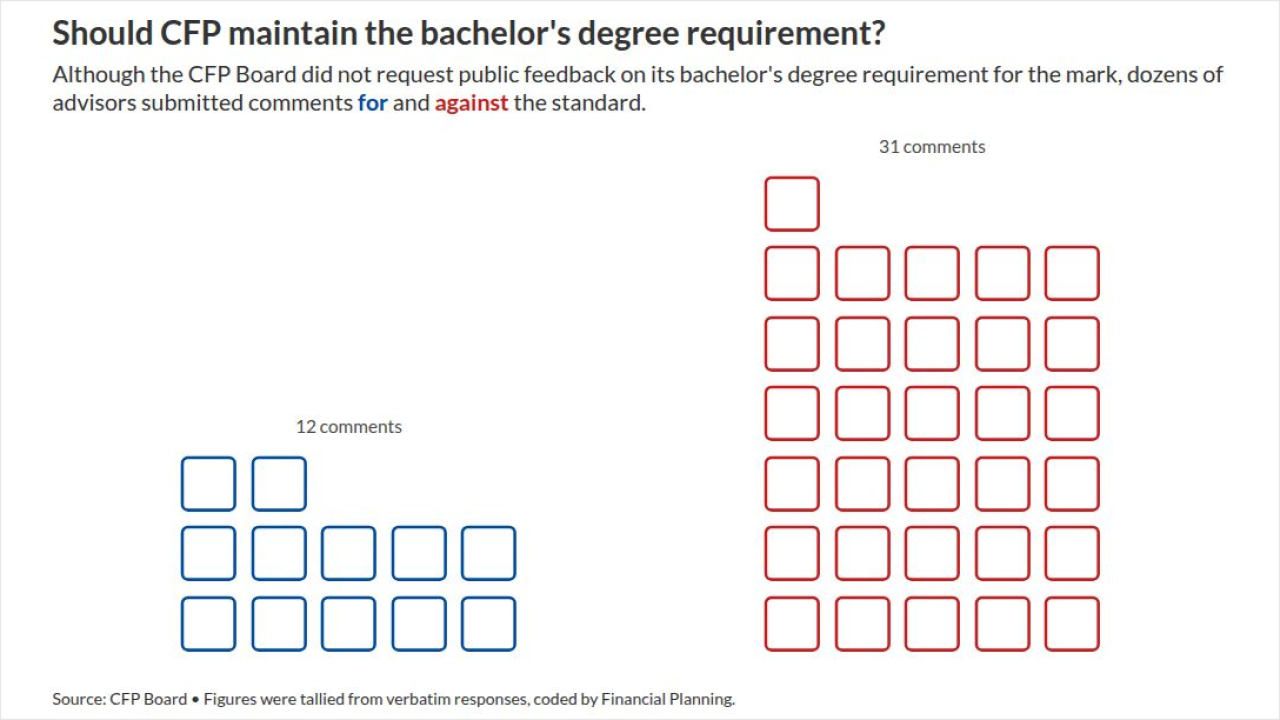It took an economic downturn, but Americans are finally adopting a more responsible attitude about their money.
Fewer expect to walk into a financial advisor’s office and get double-digit returns on investments. Instead, they are paying down debt and saving money. More importantly, clients are realizing that they have to have a strategy and direction for their money, not just a portfolio of investments and other financial products, according to Schwab Advisor Services [SCHW].
According to the San Francisco based company, investors have a better understanding of what the financial process entails, and are asking for holistic guidance in that area of their lives.
“They realize they have to be engaged, and cannot sit there on autopilot,” said Laura Mattia, a principal of wealth management at Baron Financial Group in Hawthorne, N.J. “People are scared and they realize they cannot leave that up to fate.”
A majority of financial advisors (59%) surveyed by Schwab Advisor Services said that they expect clients to save more over the next six months. Sixty-two percent say that their clients are making more of an effort to pay down debt, according to the Independent Advisor Outlook Study, which was released Tuesday.
Even so, advisors are prodding clients to do more, as 55% of advisors said that they recommend that consumers save at least 9% of their personal income. That is well above the current national savings rate of slightly more than, 4%, according to the Bureau of Economic Analysis.
“I saw and do still see, a whole refocus on being responsible—responsible spending, saving and living,” Mattia said.
Schwab Advisor Services polled 1,144 advisors in January at independent advisor firms, who custody their assets at Schwab. The new frugality among clients stems from a revelation that there is better way to manage their money than simply housing their assets at a large financial firm, and relying heavily on a broker to make the right decisions for them.
During the initial consultation process with new clients — especially those that previously worked with brokers at wirehouses — many realize that they did not have a goals-based financial strategy, Mattia said. Indeed, 92% of respondents said that they won new clients in the last six months and that 46% of these new clients had previously worked with brokers at wirehouse firms.
What gave independent advisors the edge over the other channel? Their independent status, according to 86% of advisors. And 83% of respondents report that their role as a fiduciary helps them win new business. Also, 65% of advisors say that one of the reasons they won new business was that clients had lost trust in the previous firm. Almost 60% of
advisors say that a desire for more personal advice was another reason they won new business. “Clients like the open-architecture approach. They have had validation from friends and people want their advice to be personalized,” said Bernie Clark, a senior vice president at Schwab Advisor Services.
Fifty-five percent of advisors said that clients are hungry for more basic services like financial planning; 38% of respondents say clients want tax planning and accounting services, and 38% say their clients want general education on investments and finance.
Clients also know that they cannot expect overnight transformations in their finances, even if they do adopt healthier mindsets. Although 57% of advisors say it is difficult for them to achieve client investment goals, significantly lower than 84% who said the same thing in July, the last time the survey was conducted.
“This has more to do with realistic expectations than anything else,” according to Mattia, whose practice overseas $130 million in client assets. Before the financial meltdown, we had people walking in our office hoping to achieve 12% growth on their investments every year. “We pushed back and said, ‘That’s not us. You’ve come to the wrong advisor. We don’t do that,’” Mattia said.
The real question is whether clients’ newfound sense of responsibility will last. Clark said, “Are we ten years later going to find ourselves committing to second and third homes again, and second mortgages?”





